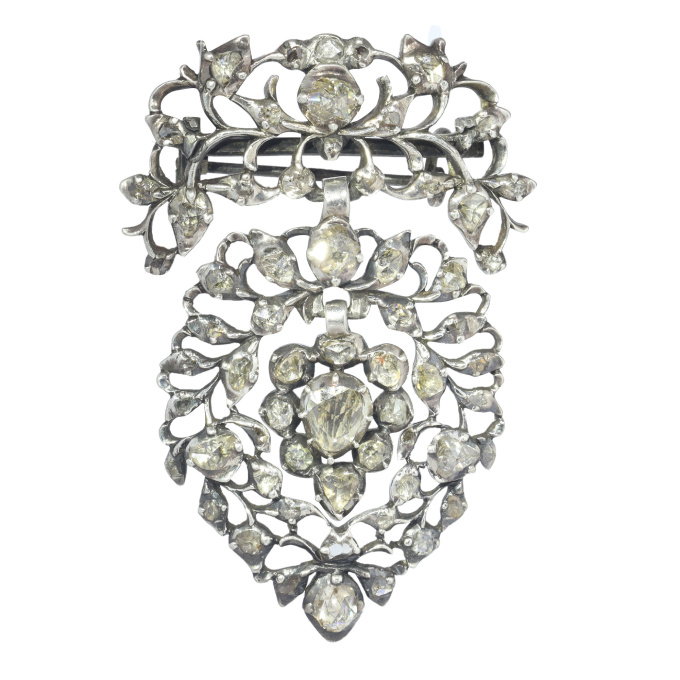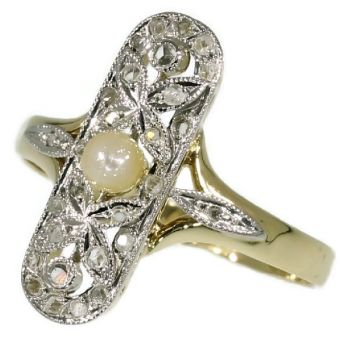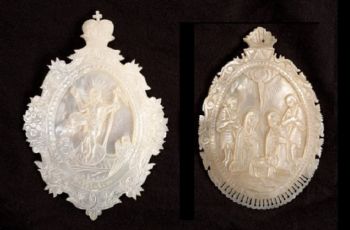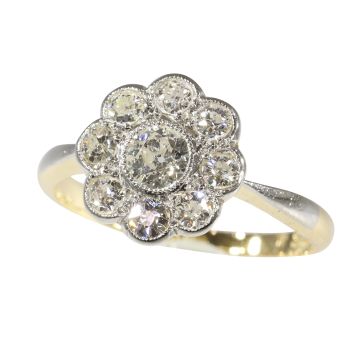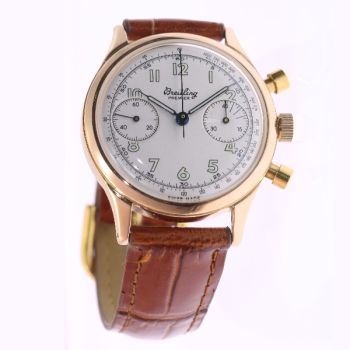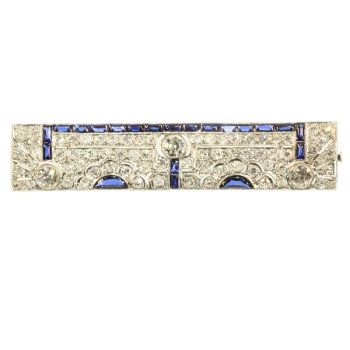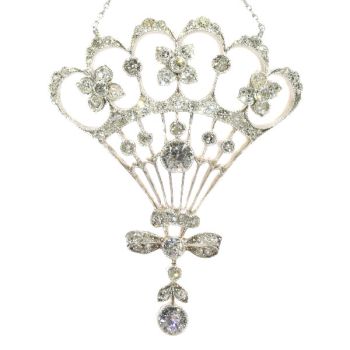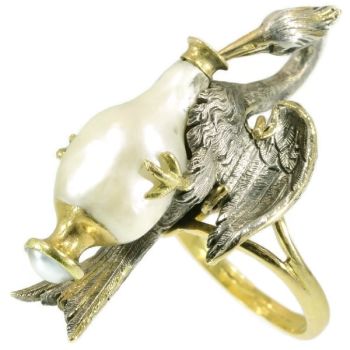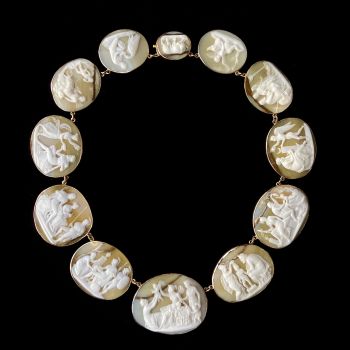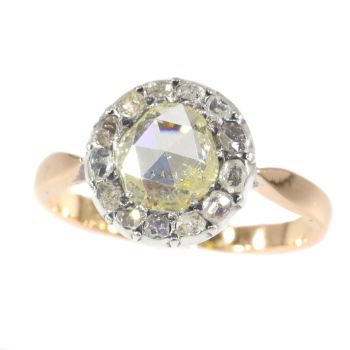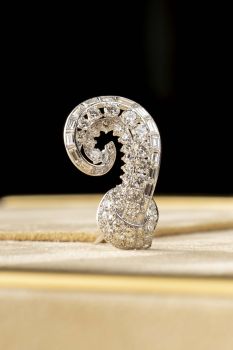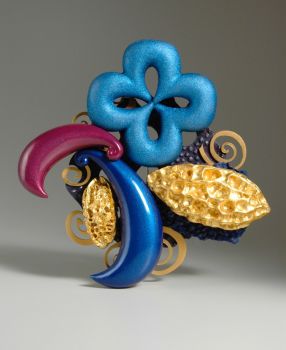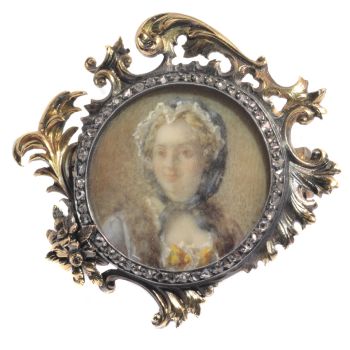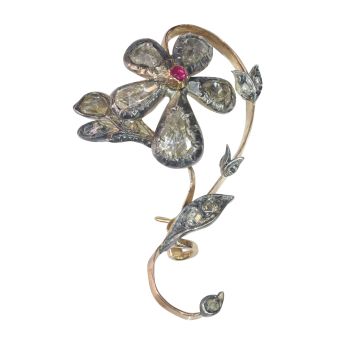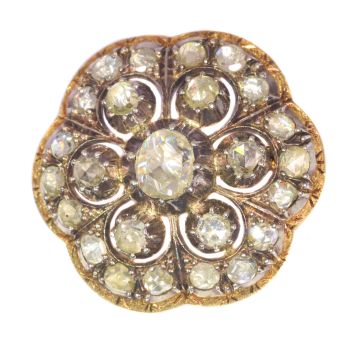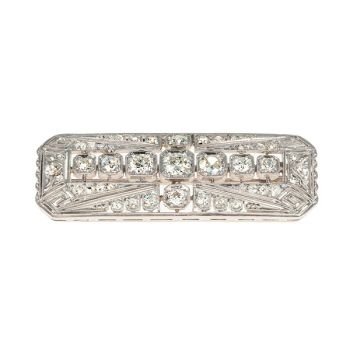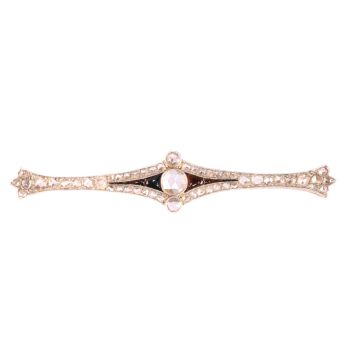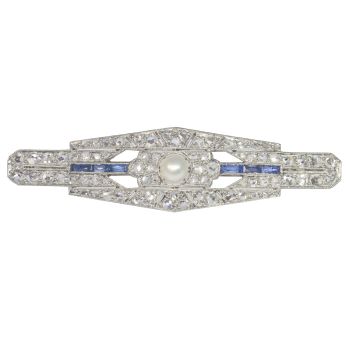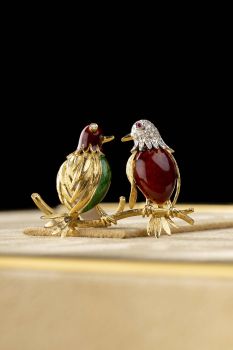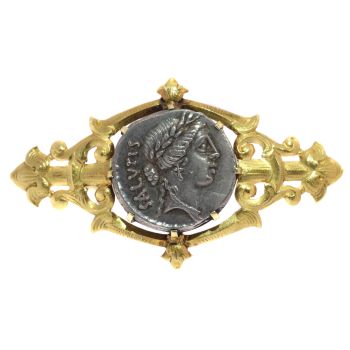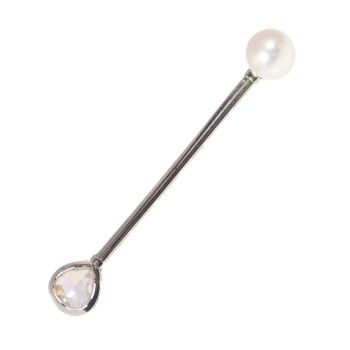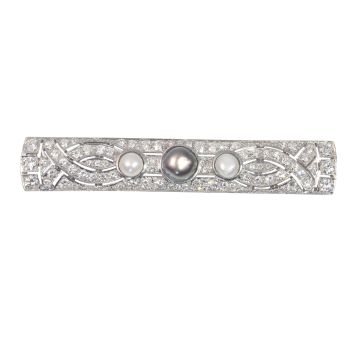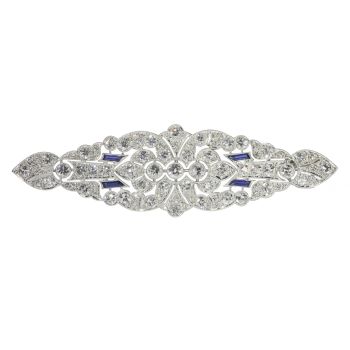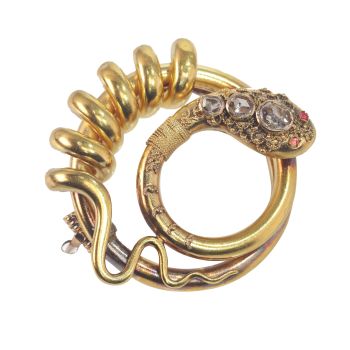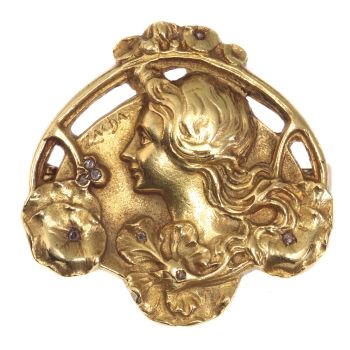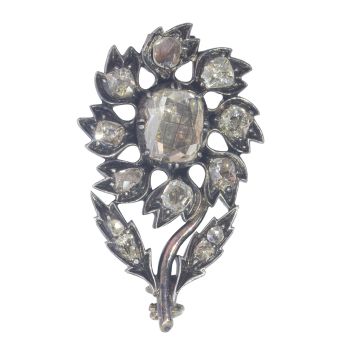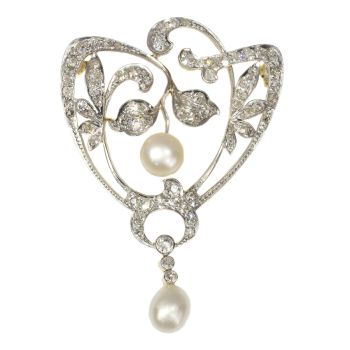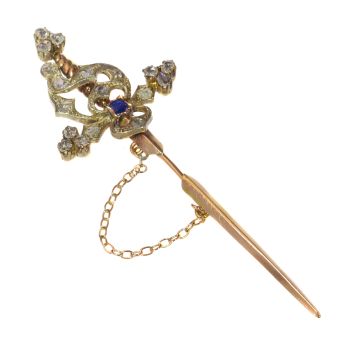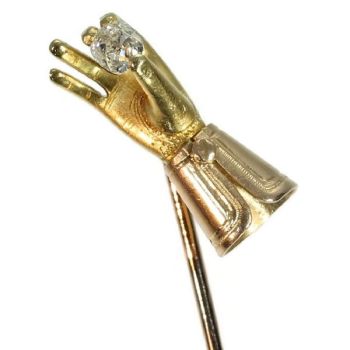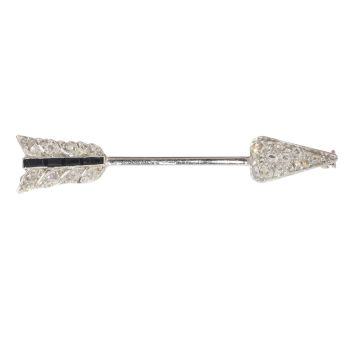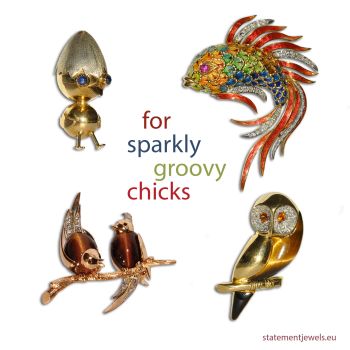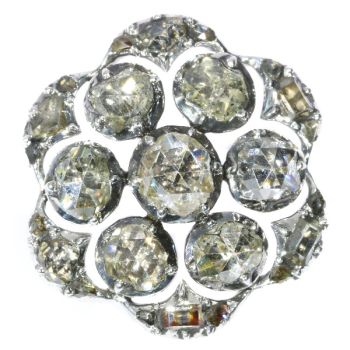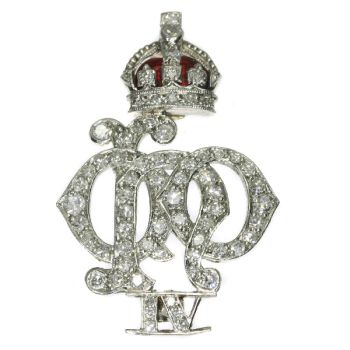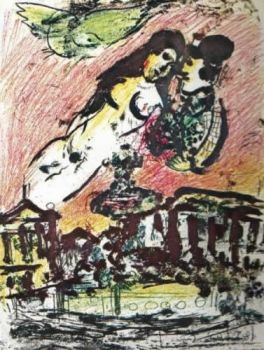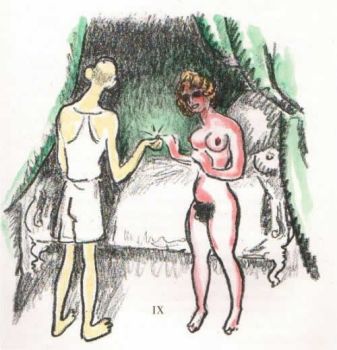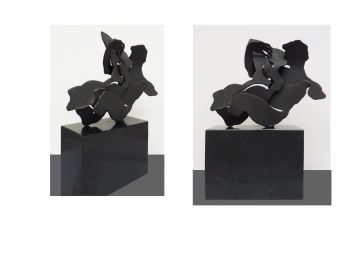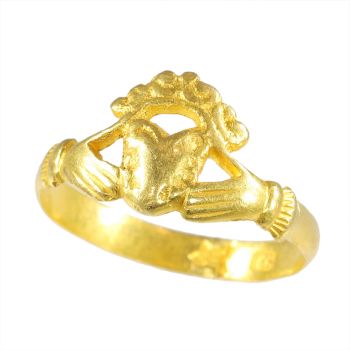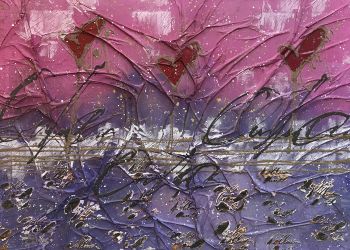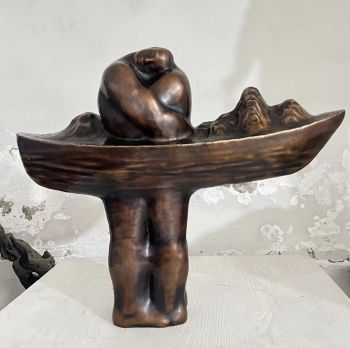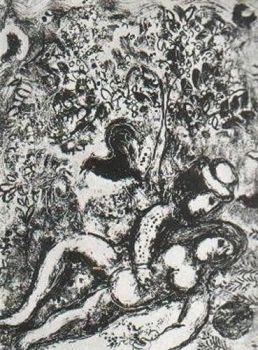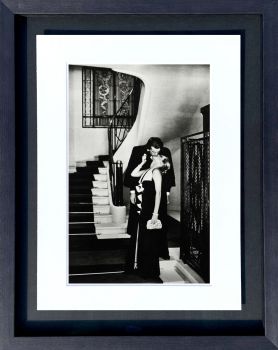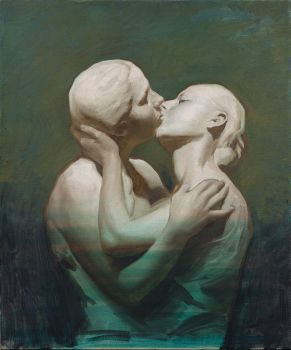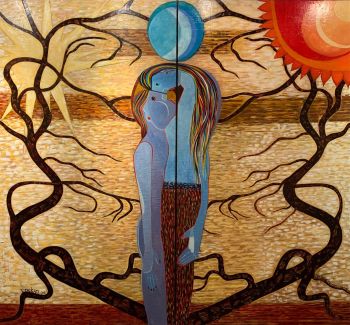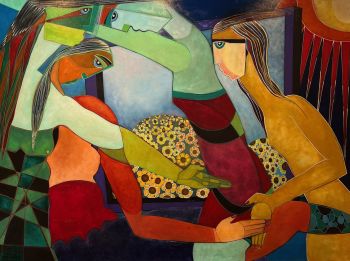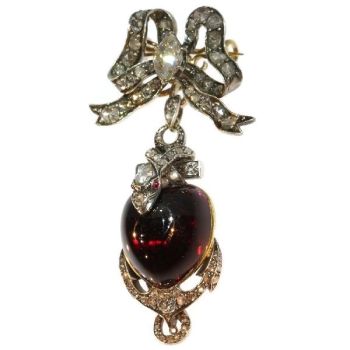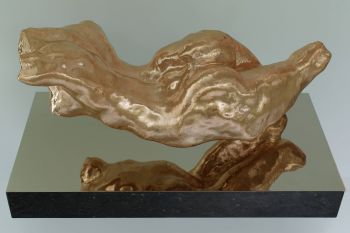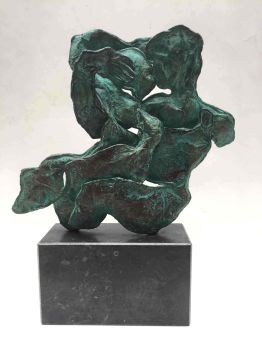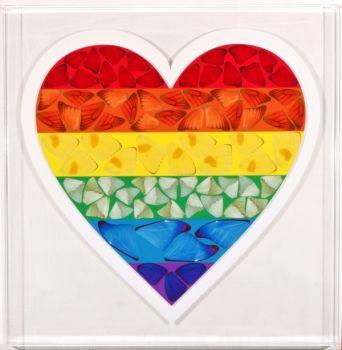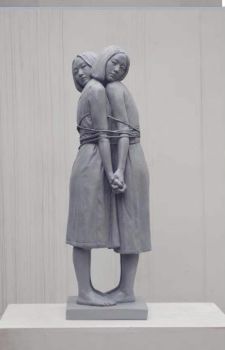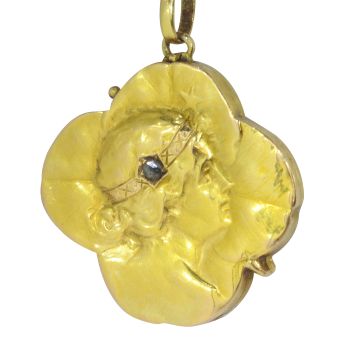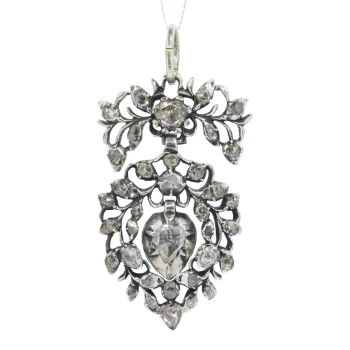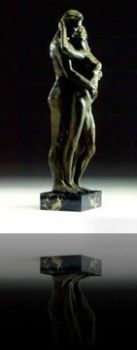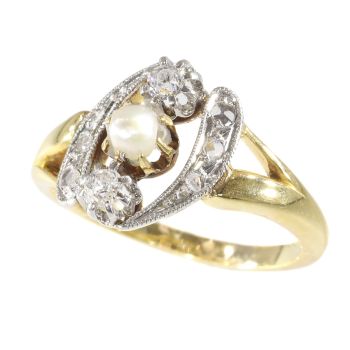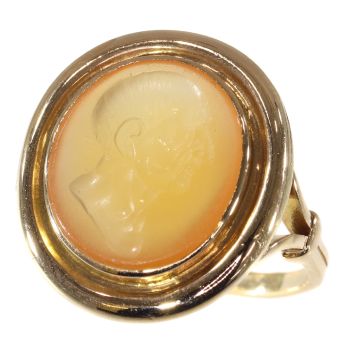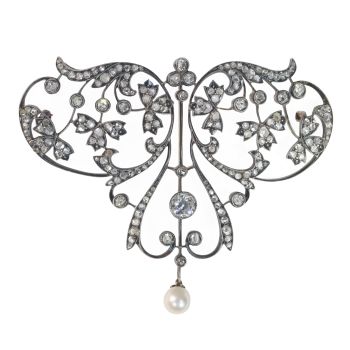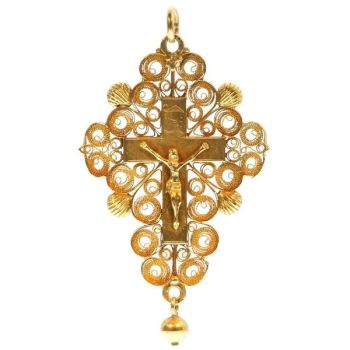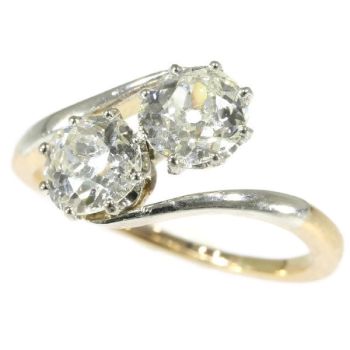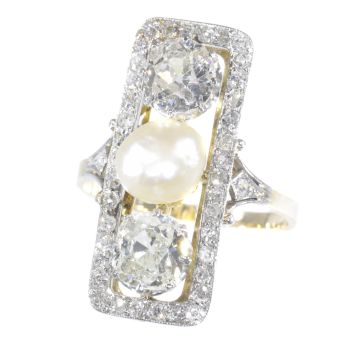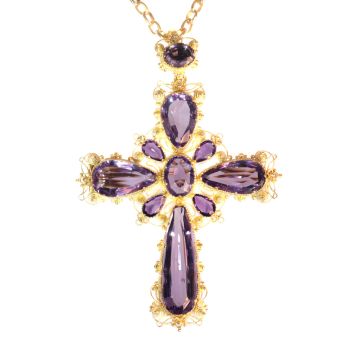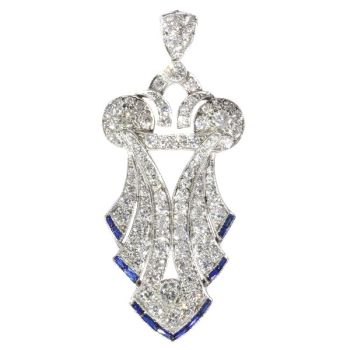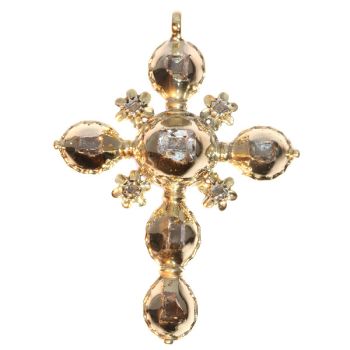Antique 18th Century diamond set Flemish Heart brooch 1750
Onbekende Kunstenaar
€ 9.750
Adin Fine Antique Jewellery
- Over kunstwerk
Antique jewelry object group
brooch (born as a pendant but somewhere in its life changed to this brooch)
Condition
very good condition
more info on our condition scale
Country of origin
Either the Netherlands or "The Southern Netherlands" the former name for the current Belgium. (Belgium seceded from the Netherlands in 1831.)
Style
Georgian - Georgian style is the name given in most English-speaking countries to the set of styles current between 1720 and 1840. It is eponymous for the first four British monarchs of the House of Hanover—George I of Great Britain, George II of Great Britain, George III of the United Kingdom, and George IV of the United Kingdom—who reigned in continuous succession from August 1714 to June 1830.
See also: Georgian
more info on styles
Period
ca. 1750
Events & facts of this era, poetry of this era, fashion of this era.
Source of inspiration
Love and romance
Theme
Flemish Heart - One of the most peculiar and wide spread Flemish piecesof regional jewelry is a diamond heart pendant the so-called "Vlaams hart" (Dutch for “Flemish heart"). These hearts were fashionable in the 19th century and mostly made in gold backed silver(see also the silver on gold technique). A Flemish heart is a heart shaped field set with rose cut diamonds and/or senelles hanging under a crowning.
There are two sorts of crownings possible:
1) The crowing is a crown and then it is build up from horizontal, diamond embellished, tendrils that are resting on a smooth surfaced ajour cut band with flattened little rhombic bars. The tendrils from the top incline slightly over this ajour cut band towards the actual cross emphasizing the unity of the jewel.
2) The crowing as love trophy. A collection of four elements, a torch and quiver that are crossing each other, a bow that is horizontal mingled with them and all held together by a laurel. The slightly upwards direction of both ends of the bow refers to the St. Andrew's cross. Torch, quiver and bow are typical attributes to Amor (Eros) and the laurel refers to the triumph of love. This combination was already in use with the old Greek and Romans and later of course in the Renaissance and had a enormous success in France in the Louis XVI period (1774-1793).
Material
Silver (touchstone tested)
more info on precious metals
Technique
The rose cuts are set on foil. This is a special technique that was used to bring the lustre of the diamonds to its best quality.
Diamonds
53 rose cut diamonds and senailles. A senaille is a simplified rose cut diamond, a small diamond chip with perhaps a few polished facets. We do not have the weight of the rose cuts diamonds nor the senailles which is normal in our trade when it comes to rose cut diamonds and senailles.
All diamonds we offer are screened by the I.J.G.C. for whether they are natural or synthetic, and all diamonds in this jewel are 100% guaranteed to be natural.
Birthstones
Diamond is the birthstone (or month stone) for April.
more info on birthstones
Hallmarks
A Dutch hallmark representing the letter letter "v" (1814-1831) for foreign made articles given to be checked by the essay office (used from 1814 till 1831)
more info on hallmarks
Dimensions
4,87 cm (1,92 inch) x 3,34 cm (1,31 inch)
see picture with a ruler in millimeters and inches
Weight
12,00 gram (7,72 dwt)
Adin Reference Nº
23124-0015
Copyright photography
Adin, fine antique jewellery
Additional information
our latest acquisitions
jewelry glossary
wall of fame
visit us in Antwerp
subscribe to our mailinglist
- Over kunstenaar
Het kan voorkomen dat een kunstenaar of maker onbekend is.
Voor sommige werken is het niet te bepalen door wie het gemaakt is of dat het is gemaakt door (een groep) ambachtslieden. Voorbeelden zijn beelden uit de Oudheid, meubels, spiegels of handtekeningen die vaak niet duidelijk of leesbaar zijn. Maar ook sommige werken zijn helemaal niet gesigneerd.
Ook kunt u de volgende beschrijving vinden:
•"Toegeschreven aan …." waarschijnlijk een werk van de kunstenaar maar niet zeker of gedeeltelijk
•“Atelier van ….” of werkplaats van” een werk uitgevoerd in het atelier of atelier van de kunstenaar, eventueel onder zijn toezicht
•“Cirkel van ….” een werk uit de periode van de kunstenaar die zijn invloed laat zien, nauw verbonden met de kunstenaar maar niet noodzakelijkerwijs zijn leerling
•“Stijl van ….” of “Volger van ….” een werk uitgevoerd in de stijl van de kunstenaar, maar niet noodzakelijk door een leerling; kan eigentijds of bijna eigentijds zijn
•“Wijze van ….” een werk in de stijl van de kunstenaar maar van latere datum
•"Na …." een kopie (van welke datum dan ook) van een werk van de kunstenaar
•“Getekend…”, “Gedateerd….” of “Ingeschreven” dan is het werk gesigneerd/ gedateerd/ ingeschreven door de kunstenaar. De toevoeging van een vraagteken duidt op een element van twijfel
•"Met handtekening ...", "Met datum ...", "Met opschrift..." of “Draagt signatuur/datum/opschrift” dan is de handtekening/datum/opschrift toegevoegd door iemand anders dan de kunstenaar
Bent u geïnteresseerd om dit kunstwerk te kopen?
Related artworks
- 1 - 4 / 12
- 1 - 4 / 24
- 1 - 4 / 24
- 1 - 4 / 12

